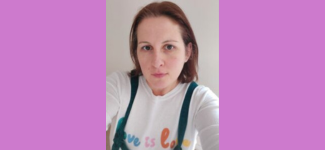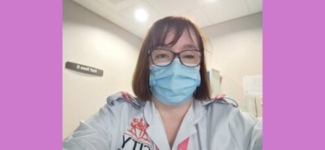A consistent and strategic student voice bridging the gap between practice providers, universities and the student population
Students and their education and learning experience are crucial to maintaining the pipeline for the future workforce. With the increasing focus on education and training, the importance of ensuring a student voice within the system to consider the quality and impact of education and training decisions needs to be recognised and supported.
This programme of work is funded by Health Education England South East following the success of the Hampshire and Isle of Wight Student Nurse Council. We have newly established six multi-professional Student Councils across the South East region of England. There is one Council per Integrated Care System (ICS) and membership of the Councils includes student nurses, midwives, allied health professionals and trainee nursing associates.
The Student Councils enable student representation to actively support, inform and influence through local strategic discussions within their ICS in relation to the education, learning and quality agendas and allow for the escalation of issues and concerns. They provide opportunities for students to engage in the development of education and learning from a student perspective within their locality and enable them to have a voice within relevant projects and developments.
Student Council Members are invested in via leadership development programmes, remuneration or practice hours for their time and one to one coaching and mentoring with established professionals. This is more than a role, this is investment in our future workforce leaders!
Read our Student Councils Programme: Evaluation Findings report, which was published in January 2024.

The March 2023 Regional Student Council Meeting Report
Shared Professional Decision-making
The Student Councils Programme is following a model of management and leadership known as shared governance. The purpose of shared governance is to empower individuals at all levels in decision-making processes while assisting in the development of professional autonomy. At the FNF, we believe that shared professional decision-making can apply at system level and beyond – the Student Councils Programme is an example of this in action.
The core principles of shared governance include:
- Multidirectional communication that is consistent and trustworthy.
- Creating a shared vision.
- Enabling enhanced professional autonomy.
- Creating opportunities for growth and development.
- Providing meaningful recognition.
Regional Vision
The Student Councils will improve the student experience by providing a strategic and consistent voice within the southeast region of England and the six Integrated Care Systems (ICS) within it. We aim to change workplace culture at all levels in regards to student contribution, value and support within health and social care. Promoting safe, diverse, authentic, and respectful ways of working for all to enable true advocacy for our professions.
Regional Mission
Valuing, nurturing and amplifying the voice of the future workforce by bridging the gap between healthcare students, universities and practice providers.
Discover the latest themes from our recent Student Council Meetings including the objectives of each ICS Council, next steps and contact information by downloading the report below.
Student Shared Professional Decision Making Councils SE England January 2023 Report
Meet Our Student Council Members

Alissa Halliday
Surrey ICS Student Council Member

Amenah Musta
HIOW ICS Student Council

Aurora Johnson
HIOW ICS Student Council Member

Cecile Mayeux
Kent and Medway ICS Student Council Member

Eleanor Di Biasse
Frimley ICS Student Council Member

Ellie Johnson
BOB ICS Student Council Member

Emma Hotston
HIOW ICS Student Council Member

Gabby Nutley
BOB ICS Student Council Member

Josephine Nduta
Frimley ICS Student Council Member

Karin Vertue
Sussex ICS Student Council Member

Karolina Bielinska
Frimley ICS Student Council Member

Katie Jeffrey
HIOW ICS Student Council

Kelly Ottley
Kent & Medway ICS Student Council Member

Lydia Joshua
HIOW ICS Student Council Member

Matthew Etherington
Sussex ICS Student Council Member

Natasha Evans
HIOW ICS Student Council Member

Rachel Connolly
Frimley ICS Student Council Member

Rachel Faulkner
BOB ICS Student Council Member

Rachel Fletcher
HIOW ICS Student Council Member

Silas Vince
Sussex ICS Student Council Member

Simon Croucher
Sussex ICS Student Council Member

Thevuni Raju
Surrey ICS Student Council Member

Trina Coone
Sussex ICS Student Council Member

Victoria Miles
Sussex ICS Student Council Member

Zunaira Awais
Kent & Medway ICS Student Council Member
